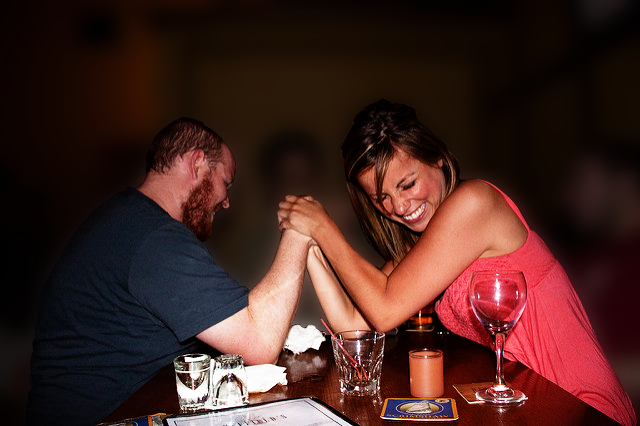
I often receive emails on the topic of trust so I think this might be a good time to talk about it. This is especially so as the Christmas season is upon us and for so many organisations this is also the time of the office Christmas party with potentially lots of alcohol and sometimes a little too much “merry”.
Trust, as defined in the dictionary, is the reliance of one person on another for honesty and sincerity in their relationship. Everything is open for discussion and, as a committed couple there is an expectation that as no subject is taboo then also there is an expectation that both of the couple will say what the truth is for them even when this might be hard to say.
So when we feel we cannot trust our partner, is that saying more about us or is it saying more about them?
My hunch is that maybe it says something about both of you.
Our distrust of another may well be about our own insecurities. While we might say we expect truthfulness from another we actually might find it difficult to be truthful ourselves and consequently not really believe that it is possible to get that from the other.
Alternatively it might be that if I have grown up with dishonesty, either between my parents or from my parents to me, then it is also more likely that I will be unsure about the ability of someone else to be totally truthful in their conversations with me.
The alternative of course is that your partner has already done something which was less than honest leaving you suspicious of their every word and action. If your relationship has come to this then you are in serious danger of losing your relationship unless you do something about it and quickly.
Where these two possibilities might intersect is at the place where, if you already have a distrust of your mate, then they actually might act upon it as they feel that they’re dammed if they do and dammed if they don’t.
What can you do about it?
If you feel that the issue is more about you then go and speak with a professional about it. You might benefit from doing some personal psychotherapy. In this case the therapist may explore some of your early life history to discover the past experience of your distrust.
The process would be similar if you are the one struggling to stay honest. The reason for this might also be discovered in exploring your past.
Once you know where it came from you can then do something about it.
If on the other hand you are married to someone who has behaved in such a way that no longer deserves your trust then you need to talk about it as quickly as possible either with your spouse or with a Couple’s Counsellor.
The Couple’s Counsellor will help both of you in articulating what your concerns are about hearing or telling the truth assisting you to communicate this to each other. This is because it is only in the truth that you will find true happiness and a promise that your relationship really can make it to become a long-term committed relationship.
If you don’t have access to a Counsellor try this exercise:
Make a time with each other to sit and talk. Choose one of you to have the entire stage first. You are “The Speaker”. That means that for whatever time you have chosen you get to speak without interruption other than for the other person clarifying what you are saying or to ask questions to help both of you get as clear a picture as possible about what it is “The Speaker” has chosen to speak about.
The other of you is “The Listener”. Your job is simply to listen. This must be without judgement or response in defence of yourself. That means that the other person can say whatever they want while you remind yourself that this is only their opinion even if you don’t agree with it.
And whatever you do, and whatever it is they say, just keep listening. And when I say listen I mean really listen: with your head, hour heart and your spirit as you just might be surprised at what there is to learn.
Try it one way and then next time you come together it will be the listeners turn to become “The Speaker” and the speakers turn to become “The Listener”.
This is what a real conversation is. As we speak and listen we will come to hear the truth and maybe even rediscover the trust that might have been lost making it once again the glue for a truly healthy, loving relationship.
Remember you were designed with two ears and one mouth for a reason!
So until next time – Relate with Love

 In any relationship worth having conflicts and fights are bound to arise. The true test of the relationship is whether or not you feel that it is worthwhile to resolve these conflicts and if you are able to do so in a fair and objective way.
In any relationship worth having conflicts and fights are bound to arise. The true test of the relationship is whether or not you feel that it is worthwhile to resolve these conflicts and if you are able to do so in a fair and objective way.






